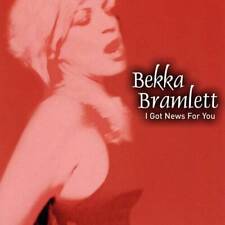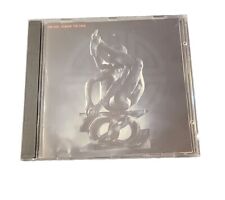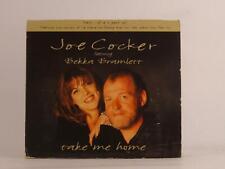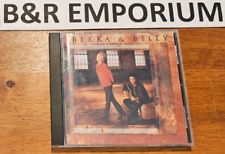FLEETWOOD MAC: Better than before: Yesterday's gone: The 1970s supergroup is drug-free, musically tight and back together on tour..
by Miriam Longino, Staff Writer
New York - In the world of rock, it's one of the few inner sanctums of mystery left: Stevie Nicks' dressing room.
Down a hallway in Long Island's clunky Nassau Coliseum, where the legendary Fleetwood Mac has just played to a sold-out house, a publicist pulls back a black curtain---and there she is. The rock goddess is standing alone in the middle of the makeshift quarters like Rhiannon in the mist. Naturally, there are candles---fat white towers of wax casting a glow from iron stands. A table is spread with fruit, uncorked bottles of Moet champagne, yellow roses, white porcelain bowls filled with lemons. On the floor: two pairs of knee-high, suede boots with 5-inch stacked heels. A boombox is blasting music, circa MTV 1982: Level 42's "Something About You," Madonna's "Dress You Up." There's a rack of hippie chick costumes---feathered capes, flowing dresses. The only things missing here are the smoke and the doves.
Dressed in a beaded black Victorian-era gown, Nicks looks like a witchy Madame Alexander doll. Her skin is paper-white and seamless. After years of weight gain and health problems, she is unexpectedly tiny, almost fragile. The superstar seems like a wild animal frozen on display and doesn't speak except for a breathy "hello." No doubt she is thinking that most of the young MTV executives lining up to meet her were barely out of playpens when "Rumours" became the phenomenon of 1977 and the top-selling album at that point in rock history (20 million).
The wounds are healing
After years of notorious infighting and countless solo projects, the golden lineup of Fleetwood Mac is back together for a tour commemorating the 20th anniversary of that landmark LP and promoting its new chart-topping album, "The Dance." At times, it feels like a flashback. Nicks, Lindsey Buckingham, Christine McVie, Mick Fleetwood and John McVie are again belting out classics such as "Go Your Own Way" to sellout crowds that are paying up to $80 a head to see them. Saturday, the band will roll out its act to another packed house at Lakewood Amphitheatre (the show sold out in two hours). And fans and critics are walking away with an "Oh, wow" look on their faces upon discovering that this Fleetwood Mac is much more than a dinosaur act stumbling to the mud pits in an attempt to cash in one last time. This Fleetwood Mac is pumped, drug-free, musically tight and truly energized about what it's doing.
The fire fueling this engine is the unobtrusive man standing in the back corner like an artsy Boo Radley. Buckingham, the moody genius responsible for writing and producing most of the group's big hits, has finally come to terms with the fact he's a part of Fleetwood Mac. After years of shunning the group, holing up in his basement studio making demo after demo of experimental music, Buckingham had a epiphany last year when record executives approached him about a reunion tour and album.
"It's a situation where I've come to realize that the whole is greater than the sum of the parts," he says in a soft, contemplative voice. "We have the chemistry that always did exist, but it's not convoluted by all the garbage and baggage."
The baggage he refers to is the notorious personal conflicts members of the group dealt with, most notably his turbulent relationship with ex-girlfriend Nicks. It was their messy breakup---and the divorce of Christine and John McVie---that became the highly public backdrop during the recording of "Rumours." As that album sold millions, the group was disintegrating, living on infidelity and massive amounts of cocaine. Yet night after night, the five members of the world's most popular band of the day took the stage, singing hit songs such as "Never Going Back Again" to the very people they were growing to despise. Buckingham concedes that the relentless passion fueled the music, but took years to get over.
Sipping on a cup of coffee earlier in the day at a Manhattan hotel, Buckingham---looking every inch the sensitive poet---seems to withdraw into his bulky gray turtleneck as he talks about healing, happiness and the wisdom that comes with middle age.
"Usually, when you break up with someone, you don't see them every day for the next 10 years," he says. "I don't think I dealt with a lot of those issues fully. To come back for me was personally cleansing. There's a sense of the rekindling of spirit in healing of wounds. I can look Stevie in the eye now, and in 1987 when I left, her eyes especially, and maybe mine, too, were kind of blurry. I can look at her now and acknowledge there's still a love there---a love for two kids who came down from Northern California and tried to make something happen, and did make it happen. We're still here, and that becomes very sweet."
Maybe Buckingham's been to the mountaintop. His new midlife Zen fires the tour show like an injection of high-test gasoline. From the time his plucky guitar kicks off the opener, "The Chain," he is all over the stage, bending over like a young punk during soaring guitar solos, jumping back and forth to Fleetwood's pounding tom-toms, looking into Nicks' eyes---and planting a poignant peck on her cheek---during the gut-wrenching "Landslide." One gets the feeling that it is his long-withheld enthusiasm that's feeding the rest of the group---Nicks' banshee screams, Christine McVie's rolling piano hooks, the famous Fleetwood/John McVie rhythm section.
Howie Klein, the aggressive president of Reprise Records, concedes the group's reunion "really came down to talking Lindsey into doing this." He says Buckingham was completely focused on a solo project and skeptical of the nostalgic implications. "I didn't hear any reservations from anyone else in the group, just Lindsey. The rest of them had already thought it would be a good idea. Mick was spearheading the effort."
That was a problem in itself. Fleetwood hasn't exactly handled the Fleetwood Mac name with care over the past few years. By the early 90s, after Nicks, Buckingham and Christine McVie had called it quits, he continued to tour as the Mac with a host of subpar performers filling in for their famous counterparts. Audiences were walking out of shows, disgusted that such a great band had become a parody of itself.
"Yeah, there was some damage control that had to be done there," Buckingham says candidly.
An exhausting routine
Klein says he considered the image problem, but had "total faith" that this version of Fleetwood Mac was worth the millions his company has invested in "The Dance" (No. 6 on the Billboard album charts), August's MTV reunion special and the three-month, 40-plus city tour that ends Nov. 30.
No one is happier about the comeback than Fleetwood. Once again, he is living out his dream persona of rock star. He sails into Nicks' dressing room with great fanfare, towering over the crowd with his long ponytail and black cape trailing behind him in carefully flamboyant calculation.
"It's show biz," he says in a still-thick British accent. "You're up, you're down. We're blessed by having such a huge body of work and that the music is reliant on emotion. It's a feel thing. You can't fake that." The McVies seem the least enthusiastic about the revival. Christine and John, now with their own significant others, leave the coliseum as soon as the last notes reverberate from the hall. It seems as though they're punching a time clock and could just as easily be bolting out the door at a Firestone plant.
The routine is grueling. The band members---all hovering around 50 ---are taking on a schedule that would tire a 16-year-old. Like the touring Eagles, Fleetwood Mac has been accused of doing it only for the money. And, certainly, millions of dollars will fatten their bank accounts (especially Fleetwood's, who has declared bankruptcy). But unlike many other boomer reunion shows, this one does indeed seem to have an element of purpose and spirit about it.
Classic rock disc jockey Bob Bailey of Atlanta's Z93, citing the MTV special, says he's "real impressed with the reunion. You can tell the creative juice is where it was. It's a risky undertaking to bring back together people who were on the same wavelength 20 years ago. They may not have anything in common anymore. It's like a high school reunion; you want to be close again, but 20 years later that's not always possible. . . . And think about this: There's a ton of women pop stars in the center stage right now, and a lot of them grew up listening to Stevie Nicks."
Judging from the crowd in New York, Bailey's observations are on target. Although many of the fans in the crowd are well into their 40s, a surprising number are younger---women who probably buy Fiona Apple and Alanis Morissette CDs, and are no doubt attracted to the aura that Nicks still exudes. In a time when most female pop stars were chirping out disco hits, Nicks was a trailblazer, a bona fide rock superstar who didn't have to dress in the butch leather of Joan Jett to hold her own with a band. She did it with dresses and lyrics about witches and women's pain. A major fan, punk-rocker-turned-actress Courtney Love, put it this way: Nicks was "a pioneer, dealing with all these sexual politics, being feminine, right out front. She epitomized the ideal gorgeous, California, your-convertible girlfriend. But she is so much more than that."
Nicks' and Fleetwood Mac's appeal is apparent today when you hear 21-year-old Amanda Malley, a University of Georgia student, discuss her plans for the show at Lakewood. She doesn't have tickets. "But me and my friends are going to drive up and sit in the parking lot and drink beer and listen," she says. "They're great. I love those songs."









